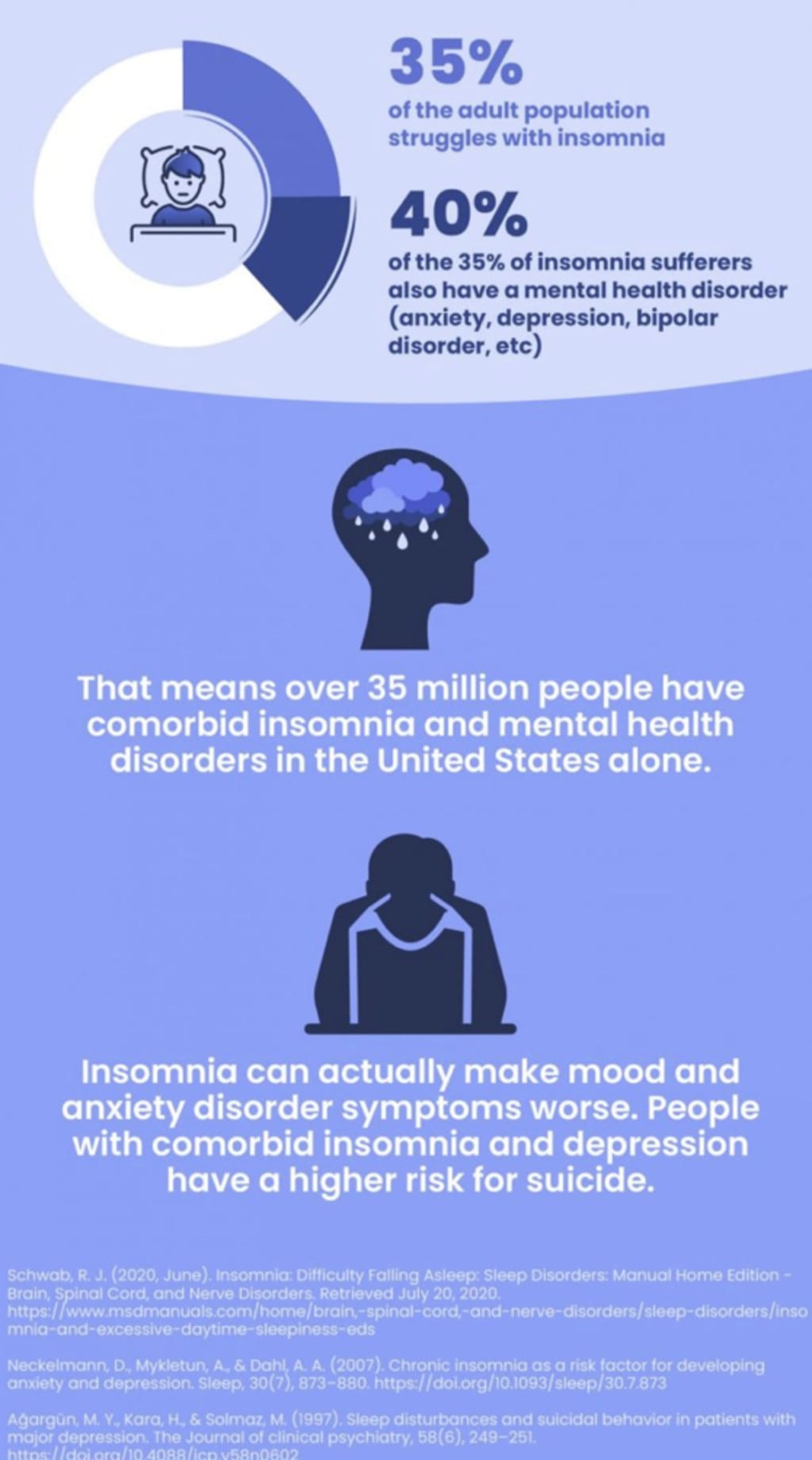build stress resistance and enhance For a Better Night’s Sleep
Delta Sleep was formulated to improve sleep quality, build stress resistance and enhance cognitive performance..

Hey 👋
One of the brand’s latest formulations is Delta Sleep, the Next Gen Sleep Disorder Formula that restores healthy sleep-wake cycle, protects the BBB, improves memory, attention and reasoning
I will like you visit this page to see a detailed solution,after reading what am going to tell you here ,it’s has helped a lot of people
Just copy and paste this or click it to visit >>{bit.ly/3WjiMUc}<<
Melatonin, Chamomile and Lemon Balm help you reduce difficulty of falling asleep, and ingredients such as L-Theaning, GABA and 5-HTP allow for deeper REM phase that results in better quality deep sleep, waking up without grogginess and better cognitive performance the next day.
Insomnia is a sleep disorder that affects as many as 35% of adults. It is marked by problems getting to sleep, staying asleep through the night, and sleeping as long as you would like into the morning. It can have serious effects, leading to excessive daytime sleepiness, a higher risk of auto accidents, and widespread health effects from sleep deprivation.
Common causes of insomnia include stress, an irregular sleep schedule, poor sleeping habits, mental health disorders like anxiety and depression, physical illnesses and pain, medications, neurological problems, and specific sleep disorders. For many people, a combination of these factors can initiate and exacerbate insomnia.
Not all insomnia is the same; people can experience the condition in distinct ways. Short-term insomnia happens only over a brief period while chronic insomnia lasts for three months or more. For some people, the primary problem is falling asleep (sleep onset) while others struggle with staying asleep (sleep maintenance).
How a person is affected by insomnia can vary significantly based on its cause, severity, and how it is influenced by underlying health conditions.
There are numerous potential causes of insomnia, and in many cases, multiple factors can be involved. Poor sleep can also trigger or worsen other health conditions, creating a complex chain of cause-and-effect for insomnia.
On a holistic level, insomnia is believed to be caused by a state of hyperarousal that disrupts falling asleep or staying asleep. Hyperarousal can be both mental and physical, and it can be triggered by a range of circumstances and health issues.
Stress can provoke a profound reaction in the body that poses a challenge to quality sleep. This stress response can come from work, school, and social relationships. Exposure to traumatic situations can create chronic stress, including post-traumatic stress disorder (PTSD).
The body’s physical response to stress contributes to hyperarousal, and mental stress can have the same effect. The inability to sleep may itself become a source of stress, making it increasingly harder to break the cycle of stress and insomnia.
Researchers believe that some individuals are more vulnerable to stress-induced sleeping problems. These people are considered to have high “sleep reactivity,” which is tied to other issues affecting their sleep and their physical and mental health.
In an ideal world, the body’s internal clock, known as its circadian rhythm, closely follows the daily pattern of day and night. In reality, many people have sleep schedules that cause misalignment of their circadian rhythm.
Two well-known examples are jet lag and shift work. Jet lag disturbs sleep because a person’s body can’t adjust to a rapid change in time zone. Shift work requires a person to work through the night and sleep during the day. Both can give rise to a disrupted circadian rhythm and insomnia.
In some people, circadian rhythms can be shifted forward or backward without a clear cause, resulting in persistent difficulties in sleep timing and overall sleep quality
Unhealthy habits and routines related to lifestyle and food and drink can increase a person’s risk of insomnia.
Various lifestyle choices can bring about sleeping problems:
Keeping the brain stimulated until late in the evening, such as by working late, playing video games, or using other electronic devices.
Napping late in the afternoon can throw off your sleep timing and make it hard to fall asleep at night.
Sleeping in later to make up for lost sleep can confuse your body’s internal clock and make it difficult to establish a healthy sleep schedule.
Using your bed for activities besides sleep can create mental associations between your bed and wakefulness.
Though often overlooked, choices about your diet can play a role in sleeping problems like insomnia.
Caffeine is a stimulant that can stay in your system for hours, making it harder to get to sleep and potentially contributing to insomnia when used in the afternoon and evening. Nicotine is another stimulant that can negatively affect sleep.
Alcohol, which is a sedative that can make you feel sleepy, can actually worsen your sleep by disturbing your sleep cycle and causing fragmented, non-restorative sleep.
Eating heavy meals and spicy foods can be hard on your digestive process and have the potential to generate sleeping problems when consumed later in the evening.
Almost any condition that causes pain can disrupt sleep by making it harder to lie comfortably in bed. Dwelling on pain when sleepless in bed may amplify it, increasing stress and sleeping problems. If you do suffer from pain while laying in bed, it’s important to pick the best mattress for your needs, as beds with good pressure relief can ease troublesome pain points.
Health complications related to Type II diabetes can be part of an underlying cause of insomnia. Pain from peripheral neuropathy, more frequent need for hydration and urination, and rapid blood sugar changes can interrupt sleep. There is also a correlation between diabetes and other health conditions that are known to interfere with sleep including obstructive sleep apnea (OSA) and depression.
Other types of physical illness, including those affecting the respiratory or nervous system, may pose challenges to sleep that can culminate in short-term or chronic insomnia.
About the Creator
Kenneth Ugwu
My first love is poetry — it’s like a desperate need to write, to free up space in my mind, to escape the constant noise in my head. Most of the time the poems write themselves — I’m just the conduit holding the metaphorical pen
Enjoyed the story? Support the Creator.
Subscribe for free to receive all their stories in your feed. You could also pledge your support or give them a one-off tip, letting them know you appreciate their work.






Comments
There are no comments for this story
Be the first to respond and start the conversation.